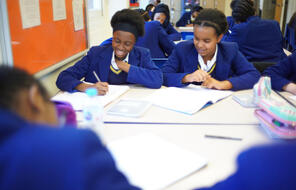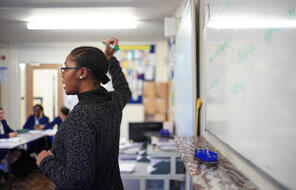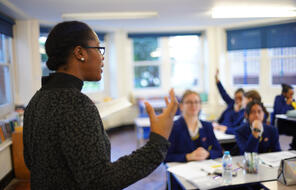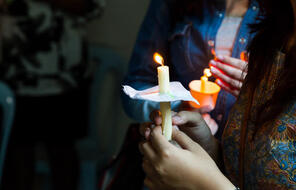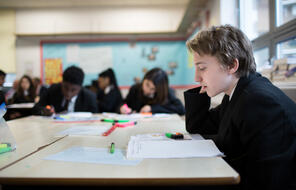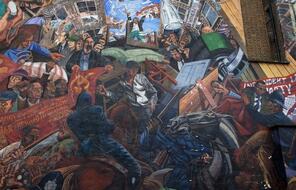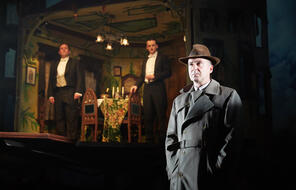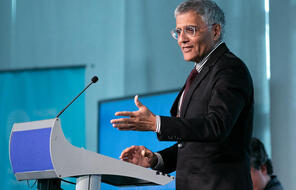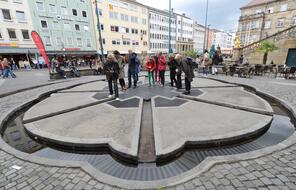Our Approach
We enable teachers to promote students’ historical understanding, critical thinking, empathy, and social–emotional learning, as well as facilitating transformative exchanges in their classrooms. As students explore the complexities of history and human behaviour, they reflect on the choices they confront today and consider how they can make a difference.
The Scope and Sequence
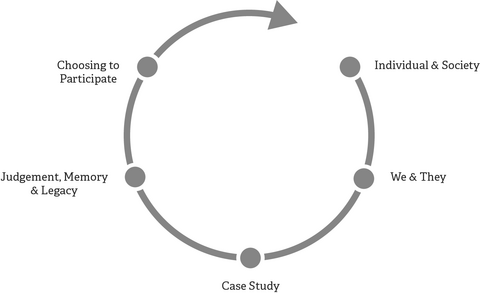
- A Facing History course begins with an exploration of the Individual and Society and how individual and national identities are formed.
- We and They focuses on the processes within the national and collective identity that help people connect but that also contribute to misunderstanding and conflict. Students consider themes of identity, individuality, conformity, stereotyping, group loyalty, and responsibilities to those beyond one’s immediate circle.
- Students then apply the concepts related to individual and group behaviour to a historical or literary Case Study. Students reflect upon and discuss issues that are both timely and timeless, grasping the complexities of the past, while also connecting it to their lives today. Students come to understand the fragility of democracy and the importance of acting to protect and preserve the rights we can often take for granted.
- As students move from thought to judgement, they discuss questions of Memory, Judgement, and Legacy and explore the concepts of good and evil, guilt and responsibility, prevention and punishment. How do students understand and judge the actions and inactions of the people whose lives and choices they have studied? What do those concepts mean in our world today?
- Students finish the unit by considering how understanding the past can connect with the issues of today in Choosing to Participate. Stories of everyday individuals whose choices and actions have made a difference in their community and nation, in both large and small ways help students to understand that they also have the power to change the course of history through their own positive action. They explore what it means to exercise one’s rights and responsibilities to be an upstanding citizen in our democracy.
The Pedagogical Triangle

Our Pedagogical Triangle demonstrates that the processes of academic rigour, emotional engagement, and ethical reflection strengthen each other. At the centre is the students’ active, upstanding citizenship and their confidence that they can play a positive role in their classrooms, schools, communities, and the world beyond.



